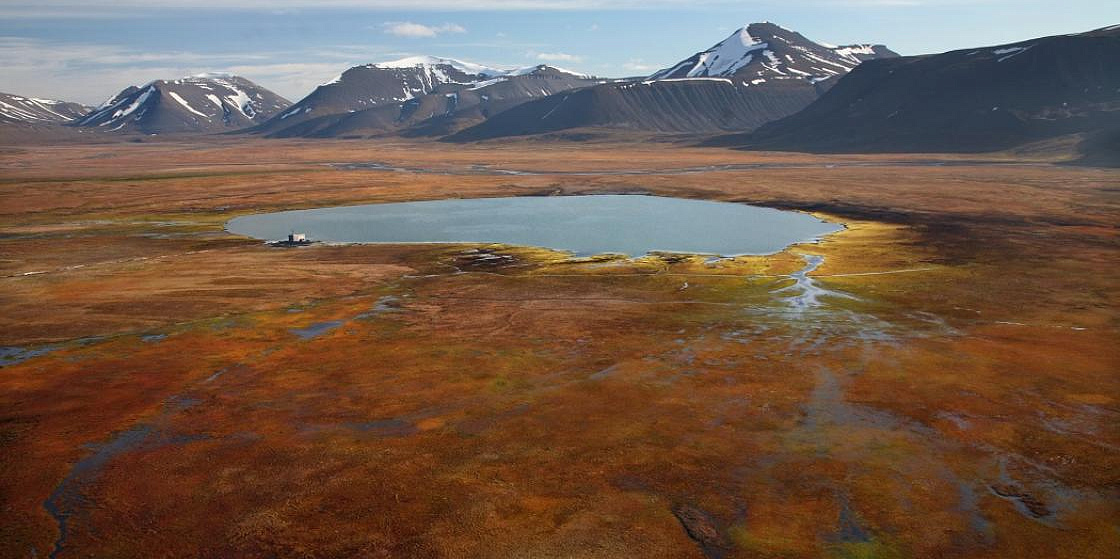
Photo: Georgievsky Igor/GeoPhoto.ru
Government Approves Low-Carbon Strategy for Russia
The Russian Government has issued a strategy paper setting long-term goals for the transition to a low-carbon economy until 2050. The strategy’s purpose is to adapt Russia, whose economy is heavily reliant on hydrocarbon exports, to the ongoing global energy shift, as well as to reduce greenhouse gas emissions and set pathways for reaching carbon neutrality by 2060.
According to the document, the transition process should stimulate the economy’s steady growth rather than slow it down. In this light, certain climate changes are seen as not only a threat, but also an opportunity. For instance, the warming trend observed alongside the coastline of the Arctic Ocean is interpreted as a factor allowing to have longer navigation periods on the Northern Sea Route and spend less on central heating, as well as improving the efficiency of carbon sinks.
The strategy outlines two scenarios featuring different sets of decarbonization policies, an “inertial” and an “intensive” ones. The latter, being focused on vast reforms and implementing new technologies, is regarded as a preferred one. Here are the highlights of this scenario:
According to Prime Minister Mishustin, the Government was instructed to design and approve a roadmap for the implementation of the said strategy within six months, while the first climate projects compliant with its directions will be launched in Russia as early as next year.
Arctic Today is a column by PORA CEO Alexander Stotskiy analyzing major international, national and regional events and trends in the Arctic.
According to the document, the transition process should stimulate the economy’s steady growth rather than slow it down. In this light, certain climate changes are seen as not only a threat, but also an opportunity. For instance, the warming trend observed alongside the coastline of the Arctic Ocean is interpreted as a factor allowing to have longer navigation periods on the Northern Sea Route and spend less on central heating, as well as improving the efficiency of carbon sinks.
The strategy outlines two scenarios featuring different sets of decarbonization policies, an “inertial” and an “intensive” ones. The latter, being focused on vast reforms and implementing new technologies, is regarded as a preferred one. Here are the highlights of this scenario:
- Until 2030, the introduction of energy-efficient and cost-optimal technologies is expected to secure a steady growth followed by a slight increase in emissions.
- The latter trend is believed to be reversed by 2031 with the implementation of cutting-edge green solutions at a national scale.
- By 2050, the gross emissions will drop by 910 million metric tonnes of CO2 equivalent. Should additional measures to absorb CO2 be taken, this amount may increase by up to 665 million tonnes.
- By 2050, the net СО2 emissions should decrease by 60% as compared to the 2019 levels and by 80% as compared to those of 1990. Under this scenario, Russia will attain carbon neutrality by 2060.
- The target economy growth rates are set at 3% per year, which is above the world’s average.
- Non-energy exports are expected to increase by 4.4% per year, with capital investment growing by 3.7% per year and real disposable income by 2.5%.
- With the Russian economy switching towards producing higher value added products, measures are to be taken to improve the competitiveness of Russian fuels in the world market.
According to Prime Minister Mishustin, the Government was instructed to design and approve a roadmap for the implementation of the said strategy within six months, while the first climate projects compliant with its directions will be launched in Russia as early as next year.
Arctic Today is a column by PORA CEO Alexander Stotskiy analyzing major international, national and regional events and trends in the Arctic.
2 November 2021




